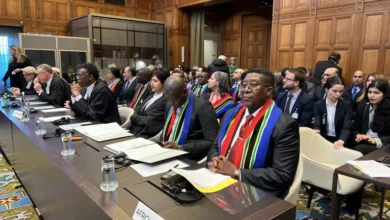It is time the labour movement takes a stand for Palestine
Alexander Livingston

In 2019, not long before the Canadian province of Quebec moved to pass Bill 21, a law outlawing religious symbols in the public sector, I travelled to the Pennsylvania countryside to take part in training provided by the United Steelworkers (USW), a trade union with members across North America.
One evening at dinner, I raised my concerns about the bill with Fred Redmond, who was then serving as the union’s international vice president for human affairs.
I shared with him my conviction that the proposed bill was nothing but an appeal to rising populism in Quebec and would serve no other purpose than to force Muslims there to assimilate into the province’s francophone identity.
The consequences of this legislation had been debated extensively in civil society, so even without my intervention, the union would have been aware of these developments.
The provincial government, led by Coalition Avenir Quebec (CAQ), had made it clear that under this bill, wearing the hijab would render one ineligible for government positions. Those who were “grandfathered in” could maintain their positions, but would be ineligible for promotion. Muslims spanning all strata of government stood to be affected, whether they be a teacher or a judge.
After listening to my case, Fred assured me that he would personally bring this issue to the attention of the union’s national director in Canada.
This was not the first time I had vocalised my fears about the threats facing Muslim workers in Canada. Weeks before, I had approached our district office in an attempt to persuade them into taking a formal position. Still, Fred’s assurances left me hopeful that the USW would fall on the right side of history.
Ultimately, despite my internal advocacy, the union maintained total silence while Bill 21 passed in the provincial legislature – with devastating effect. As a Muslim member, I found the selective vision and sensitivities of my union deeply troubling.
This problem is by no means unique to the USW. Rather, it impacts much of the labour movement in Canada, the United States, and beyond. Generally, unions are far more democratic and horizontal in architecture than the corporate world. As such, many feel threatened by the wide range of political ideologies and conflicting interests represented within their membership. Labour bodies struggle with this diversity.









